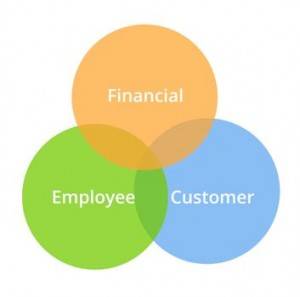March 7, 2016
Nearly all managers are now seeking to redesign their organisation 0
 Ninety-two per cent of the UK’s human resources and business leaders see redesigning their organisation as their most important priority, according to Deloitte’s Global Human Capital Trends 2016 survey. As part of this shift in focus, 42 per cent of UK respondents say they are already currently restructuring their organisation and 49 per cent have recently completed the process. Only seven per cent say they have no plans to restructure. The report also claims that lack of employee engagement is an issue currently facing 80 per cent of respondets. Only 36 per cent report that they are prepared to tackle engagement issues. Despite the emergence of ‘easy to use’ tools to frequently evaluate employee sentiment, 76 per cent of UK organisations still measure employee engagement only once a year. Forty-two percent measure this engagement through annual surveys and 20 per cent through interviews and focus groups.
Ninety-two per cent of the UK’s human resources and business leaders see redesigning their organisation as their most important priority, according to Deloitte’s Global Human Capital Trends 2016 survey. As part of this shift in focus, 42 per cent of UK respondents say they are already currently restructuring their organisation and 49 per cent have recently completed the process. Only seven per cent say they have no plans to restructure. The report also claims that lack of employee engagement is an issue currently facing 80 per cent of respondets. Only 36 per cent report that they are prepared to tackle engagement issues. Despite the emergence of ‘easy to use’ tools to frequently evaluate employee sentiment, 76 per cent of UK organisations still measure employee engagement only once a year. Forty-two percent measure this engagement through annual surveys and 20 per cent through interviews and focus groups.


































March 8, 2016
Eight in ten women believe gender discrimination still prevalent at work 0
by Sara Bean • Comment, Flexible working, Workplace
(more…)